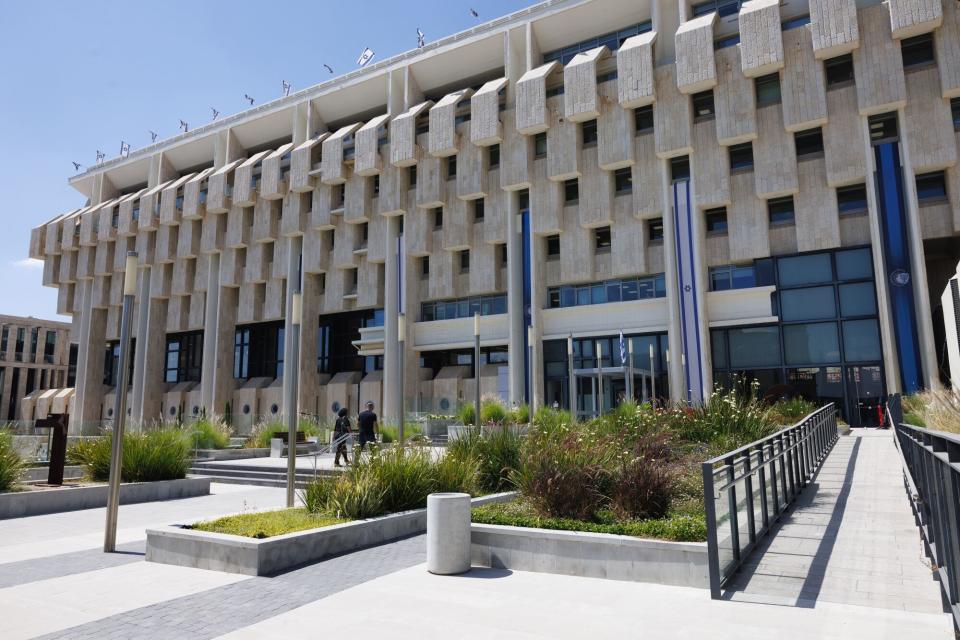Bank of Israel Holds Rate as Rising Prices Offset Low Growth

(Bloomberg) -- Israel’s central bank left interest rates unchanged for a fifth straight meeting, seeking to balance war-related inflationary pressures with the impact of an expansive fiscal policy and weak growth.
The monetary committee kept its benchmark rate at 4.5% on Wednesday, in line with the forecasts of all economists surveyed by Bloomberg.
“The tone of things will be more important than the actual decision to leave the interest rate unchanged,” Ronen Menachem, chief markets economist at Mizrahi Tefahot Bank, said ahead of the decision. “The main question isn’t the interest rate, but what the Bank of Israel thinks about the economy in general and the state budget in particular.”
Israeli Central Bank Governor Amir Yaron has been particularly concerned about fiscal policy in recent weeks, calling for budgetary cuts totaling some 30 billion shekels ($8 billion) to balance increased defense expenditure related to the ongoing war with Hamas.
Yet Prime Minister Benjamin Netanyahu and Finance Minister Bezalel Smotrich have delayed discussions on the 2025 budget, set to be the most challenging in decades, despite the process usually being well underway by this time of year. Meanwhile, Israel’s 12 month trailing budget deficit rose to 8.1% of GDP in the 12 months through July.
JPMorgan Chase & Co. expects just one more rate cut of 25 basis points this year, followed by another 50 basis points of easing by the middle of 2025. “The Bank of Israel will continue to err on the side of caution near term, especially as the geopolitical environment remains tense,” said the bank’s Anatoliy Shal in a recent note.
Still, the central bank may, he said, be forced into “a more delayed and shallower” easing cycle if the war in Gaza drags into a second year.
The annual inflation rate has risen from 2.5% in February to 3.2%, above the country’s official target of 1% to 3%. Gross domestic product grew by 2% last year, almost half the rate the finance ministry expected prior to the outbreak of the war.
“The continuation of war increases inflation and distinguishes the local economy from a growing global trend of decreasing price levels,” said Alex Zabezhinsky, chief economist at Meitav DS Investments Ltd.
Most Read from Bloomberg Businessweek
Hong Kong’s Old Airport Becomes Symbol of City’s Property Pain
Far-Right ‘Terrorgram’ Chatrooms Are Fueling a Wave of Power Grid Attacks
Losing Your Job Used to Be Shameful. Now It’s a Whole Identity
FOMO Frenzy Fuels Taiwan Home Prices Despite Threat of China Invasion
?2024 Bloomberg L.P.